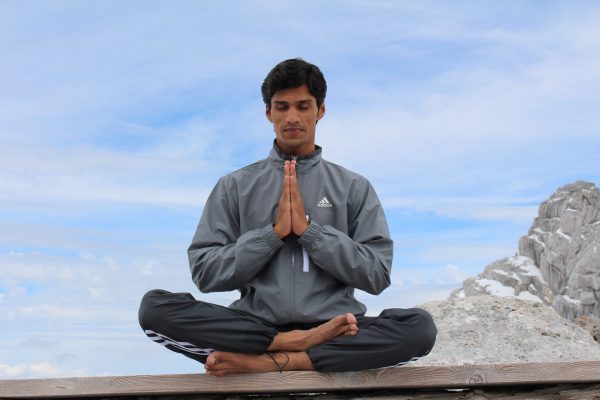5 ways to maintain Wellbeing in 2022

During these compressed and uncertain times, the best way to navigate is with intrinsic motivation and focusing on self-care. It’s important to learn how to be motivated for your own personal rewards while helping others around you with the resources you have or can share. I am the founder of a wellness company Seven Seas Spa and have been constantly exploring wellbeing past decade. It’s my passion to find answers and scientific explanations to the simplest and the oldest techniques to achieve well-being.
5 Simple steps to help focus on well-being while you adjust to a new viruses, flews and market volatility:

1. Savouring Walks: A study conducted at Loyola University Chicago, by Fred Bryant and Joseph Veroff (2007); found that a“Savouring walk” each day can help with happiness thus restoring wellbeing. How exactly? According to the study, participants took a “savouring walk” daily for a week and reported back that there was an increase in their overall happiness. Their explanation surmises that if you take the time to notice the good things in life you will feel happier.

2. Virtual Group chats: While meeting with friends and family is not possible it is always a good idea to connect with them online. I am sure you have already done that or must be doing that regularly. It’s important to not just check on each other but also indulge in deeper conversations which help you to feel happier. For me, it’s only possible when my usual topics and catching up is over and you tend to dig up deeper topics. Psychological researchers Matthias R. Mehl, Shannon E. Holleran, C. Shelby Clark, and Simine Vazire looked at the difference in happiness for people who were less social and had more superficial conversations versus people that were more social and had deeper conversations. Their findings showed that those that had more deep conversations and socialized more frequently with others were happier (Association of Psychological Science, 2010).

3.Mental Subtraction: Our mind often makes all the positive things ever happened to us look normal and tiny negatives ones quite monstrous. Mentally subtracting positive events improves people’s affective states, contrary to their affective forecasts. Journal of Personality and Social Psychology, 95(5), 1217-1224. A study was done where the participants were asked to think about what their lives would have been like had a positive event never happened; other participants either simply thought about the event or thought about how it was not surprising that the event had happened. The participants who practised “mental subtraction”—they considered their lives without the positive event—reported feeling more positive states and more gratitude than the other participants did. Koo, M., Algoe, S. B., Wilson, T. D., & Gilbert, D. T. (2008).It’s important to be thankful. As the great writer William Arthur Ward said, ” Gratitude can transform common days into thanksgivings, turn routine jobs into joy, and change ordinary opportunities into blessings”.

4.Exercise: We all know exercise is important keeps us healthy and fit but how important is it for our wellbeing and brain? A study by Dr Clinton B.Wright demonstrates that exercise promotes brain health by releasing hormones like brain-derived neurotrophic factor (BDNF) from the muscles, which encourage the growth of new brain cells. Our brain’s memory centre (hippocampus) is particularly adaptable and capable of growing new cells throughout your entire lifetime, even into your 90s, provided our lifestyle supports it.
According to another study by BABYAK ET AL (2000).It was done to assess the status of 156 adult volunteers with major depressive disorder (MDD) 6 months after completion of a study in which they were randomly assigned to a 4-month course of aerobic exercise, medication, or a combination of exercise and medication. Assessments were performed at baseline, after 4 months of treatment, and 6 months after treatment was concluded (ie, after 10 months).The results were groundbreaking. After 4 months patients in all three groups exhibited significant improvement. After 10 months, however, remitted subjects in the exercise group had significantly lower relapse rates than subjects in the medication group. The fastest recovery was with exercise and the relapse was the lowest ever with the combination of both exercise and medication.

5.Meditation: Somehow it is difficult for me to understand the benefits if it’s not Quantifiable. I had to dig deep to find an important study to understand how powerful is meditation. A study was done by BREWER ET AL (2011) with people who did 3 kinds of meditation Loving-kindness meditation, Concentration of breath, Choiceless Awareness. To understand our brain we have a default network which is constantly in thoughts which leads to an average person mind wandering 46% of the day. Meditation helps to decrease the default network activity not just while meditating but throughout the day. It can help focus on up to 90%. Regular Meditation for a year increases the size of grey matter by 2-3 % and improves memories, thoughts, Cognitive skills, motor control and precision control.
(picture source : Jasper Cole / Blend Images / Getty Image)
Life may feel very hard and stressful over the next several months or even a year. There are real burdens and responsibilities, and we won’t always like it. But the pandemic will end eventually. Like always our brain exploits ambiguity and picks the best reason for us. Just like after ending a relationship, it tells us that it was the best thing that happened to us.


